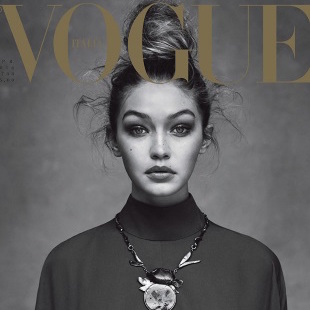Over the past few seasons, celebrity children have been «trending» in the fashion world, and Kendall Jenner’s surprising rise to «legit» model status has been the most talked about. Her new and flourishing career has attracted quite a bit of controversy in recent weeks. Several articles appeared explaining that Kendall has had a harder time due to her famous family. Others have rebutted saying that she has had her success handed to her because of them. One blogger was particularly polemical in her critique of Kendall’s rumoured experience being bulled.
Not only has this «debate» been inane, it has also overlooked the fact that Kendall Jenner is hardly the first model to come from wealth and/or celebrity.
Several fashion blogs have pointed out how many celebrity’s children have become models lately. Fashionista.com managed to list 24 (here), although I would argue that modelling a few times does not make a person a model. Nevertheless, it is notable that fashion clients seem to have embraced models that come with a celebrity name or family attached. Perhaps these men and women could have achieved what they have without their famous names. Perhaps clients find that the celebrity aspects adds value to their brand. Whether or not Kendall Jenner is a good model is a matter of personal taste. (Full disclosure: I think she’s great.) However, when Kendall Jenner walks in a show, the average American notices. That is indisputable.
What being famous-by-association really does for these young men and women, is make connections. This should be unremarkable as it occurs in every single industry. If 30 recent university graduates apply to a job at a bank, and one of them has a father on the board of directors, they will get that job. Modelling is no exception to nepotism. As the old adage says, «It’s not what you know but who you know.»
The second factor that seems to get downplayed is wealth. With few exceptions, modelling does not pay the bills quickly. For most models, it takes several years to build a reputation, and find a niche in the market. Many men and women don’t get past this stage because it is very expensive. Since pay is low and unpredictable, models have to work part-time jobs to make ends meet. Holding onto those part-time jobs can be very difficult due to the irregularity of castings and jobs. Furthermore, it can be expensive to invest in trips overseas, and is not practical if you have other obligations such as schooling or dependents.
Having family money makes life easier. It makes modelling easier. Does it guarantee your modelling success? Absolutely not. But it does allow you to focus on modelling, which is an expensive endeavour. Having wealthy parents that pay for your living expenses could certainly prolong your career, regardless of your degree of success. Having celebrity parents who can make connections for you, make it that much easier to get to the level of success where you are financially self-sustaining.
This seems to be an especially strong phenomenon in England, where the class system is particularly hardy. Cara Delevingne, Edie Campbell, Stella Tennant, and Jacquetta Wheeler all come from wealth and/or aristocracy. Georgia May Jagger and Daisy Lowe are English models descended from pop culture wealth. Many of these women began their careers from their parents knowing someone, or themselves working at Vogue UK, a publication with fascinating ties to the London (and particularly Tory) establishment. As Derek Blasberg wrote for Vanity Fair in an August 2014 feature on Edie Campbell, «England is a place where girls from good families apparently become supermodels.»
Wheeler at her wedding, photographed by Robert Fairer, which was featured in Vogue. The original caption reads, «The bride, in Temperley London, at Chilham Castle, her family’s home in Kent, England.» Emphasis is my own. | Vogue.com
Wheeler at her wedding, photographed by Robert Fairer, which was featured in Vogue. The original caption reads, «The bride, in Temperley London, at Chilham Castle, her family’s home in Kent, England.» Emphasis is my own. | Vogue.com
Not all successful models came from wealthy families. Natalia Vodianova famously emerged from post-Soviet Russian poverty and went on to an incredibly lucrative modelling career. Hers is the path so many models from Brazil and Eastern Europe seek to follow. For many, it’s the only escape from poverty that they know of that doesn’t involve drug trafficking, or sex work. For every Natalia Vodianova, there is a Jacquetta Wheeler.
These women are not undeserving of their successes. They went to set, did a good job, and in turn, booked more jobs. Good for them. We all do the best with the cards that we are dealt. The Cara Delevingnes of the world are not morally corrupt for pursuing success.
The problem is that wealth perpetuates privilege, which in turn perpetuates wealth. This is a prominent feature of capitalism that modelling is not immune to.
But it’s so unfair!
Yes, it is. However, there is no value in sending petty jealous texts to your friends about how much you hate Kendall Jenner. There is no value in hating Kendall Jenner.
There is value, however, in educating yourself. Why does this drastic wealth inequality exist in the world? How is it allowed to perpetuate in countries such as the United States of America or Britain? What powers allow this gap to grow even more? What can I do to affect change?
Hating Kendall Jenner does nothing to change the status quo.







Comments 0